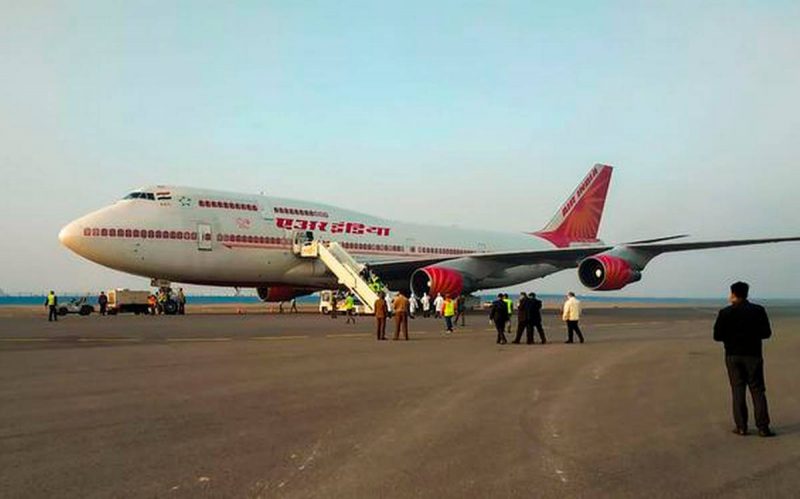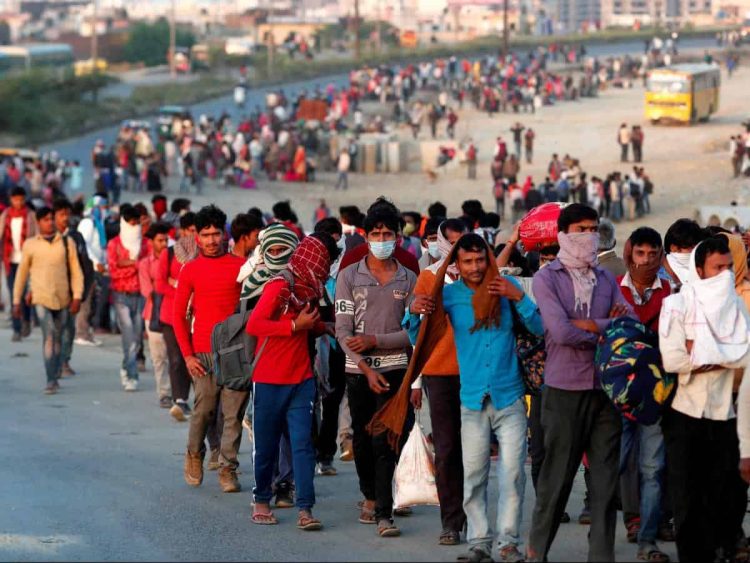Bowing to pressure from Industries and states GST Council headed by Union Finance Minister Nirmala withheld the implementation of tax rate hike on textiles and footwear
The GST Council on Friday decided to put on hold the decision to hike tax rate on textiles to 12 per cent after many states, including Tamil Nadu and West Bengal, opposed the move an official said.
The 46th meeting of the GST Council, chaired by Union Finance Minister Nirmala Sitharaman and comprising state counterparts, decided to deliberate on the issue further in its next meeting.
Currently, tax rate on manmade fibre (MMF) is 18 per cent, MMF yarn 12 per cent, while fabrics are taxed at 5 per cent. The Council in its previous meeting on September 17 had decided to correct the inverted duty structure in footwear and textile sectors.
With effect from January 1, 2022, all footwear, irrespective of prices, will attract GST at 12 per cent. It was also decided that 12 per cent uniform GST rate wold apply on textile products, except cotton, including readymade garments.
States like Gujarat, West Bengal, Delhi, Rajasthan and Tamil Nadu have said they are not in favour of a hike in Goods and Services Tax (GST) rate on textiles to 12 per cent, from 5 per cent, with effect from January 1, 2022.
Amit Mitra, advisor to West Bengal Chief Minister, had earlier urged the Centre to roll back the proposed tax rate hike on textiles, saying this would lead to closure of around 1 lakh textile units and 15 lakh job losses.
Earlier With the GST hike on textile and footwear goods, there are also fears that the MSMEs will endure the increase in pricing because of the elimination of the cost differential that existed. As a result various Industry associations complained and condemn the move .
Rajiv Wasan, General Secretary of Agra Footwear Manufacturers and Exporters Chamber (AFMEC), said the GST hike is not in the interest of the MSMEs operating in the leather sector-a segment that has already been hugely dented by the pandemic’s fallouts.
According to the Cotton Corporation of India (CCI) India is the largest producer of cotton in the world, accounting for about 22% of the world cotton production, ). Exporters, for obvious reasons, say the government should not have touched the cotton value chain as it’s the key raw material used in a host of allied segments. Hence textile manufacturers dependent on the cotton value chain also disapprove of the GST hike on cotton-based products.
Srivastava, Director, Home Textile Exporters’ Welfare Association (HEWA) said “ The home furnishing textile is one segment that extensively uses cotton. “From 1st January 2022, the cotton textile industry will have to pay enhanced GST @ of 12% on their products whereas earlier, we were paying GST @ 5%. As the cotton textile sector is already burdened because of 70% rise in price of raw materials and a nearly 500% rise in sea freight, we have no option but to extend the net burden of enhanced 7% GST to the end-consumer,”
Bimal Jain, Chair of the Indirect tax committee at PHDCCI, said
“The government claims that the amendment to change the GST rate from 5% and 18% to 12% is to overcome the refund of the Inverted Duty Structure. However, it is “not the solution” since by increasing the GST rate on most of the textile products from 5% to 12%, the government has created more hurdles for the textile industry as this sector is majorly unorganised”
He added “Instead, the government should have brought down the rates of raw material to 5% and ensure the sustainability of sectors as it creates employment opportunities, fighting with pricing and costing, etc, ” said Jain.









